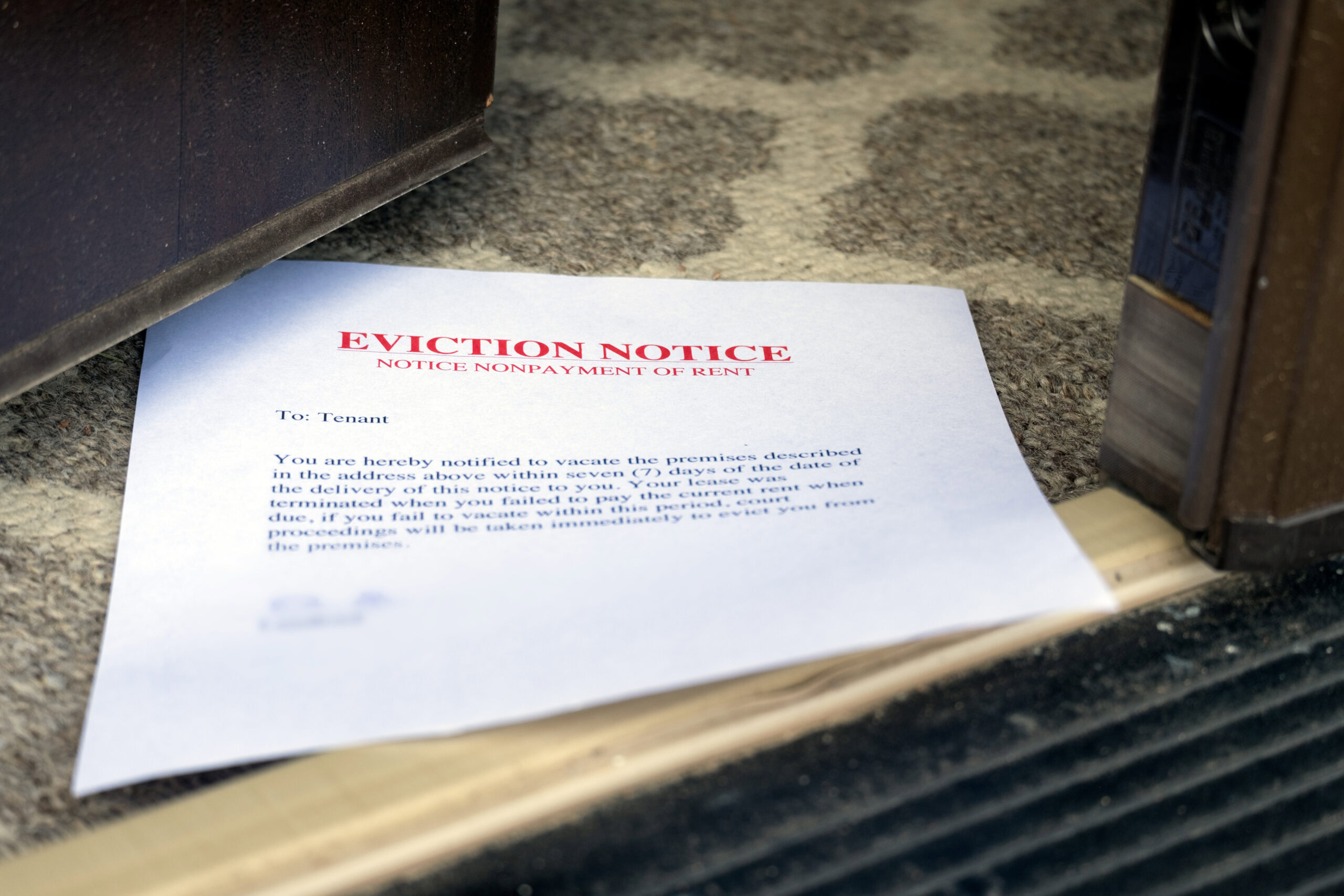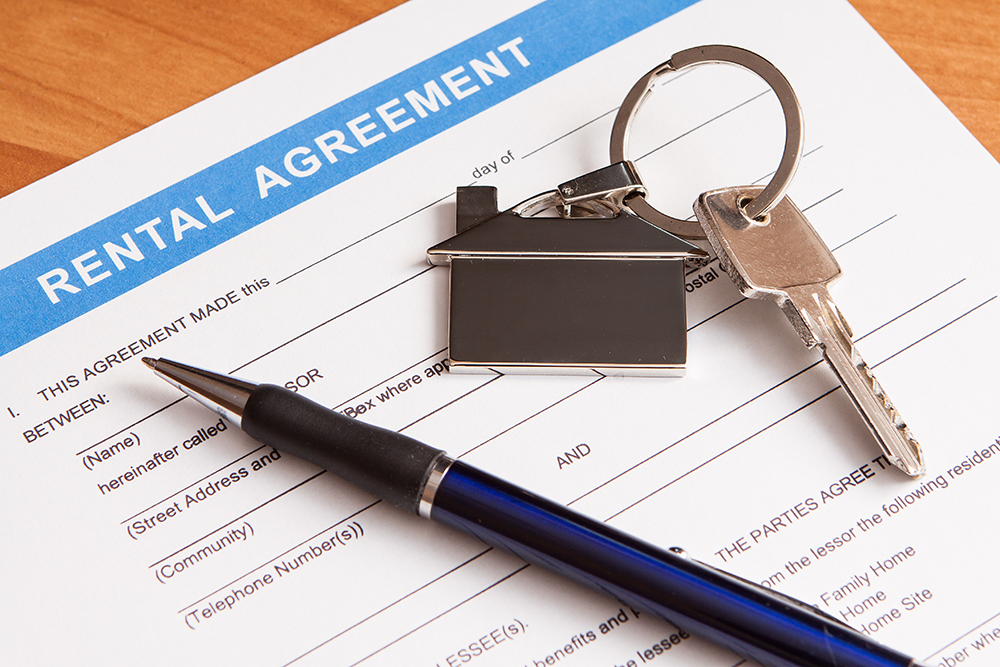Landlords can use a Section 8 notice to evict tenants before a shorthold tenancy comes to an end.
You can only use one if your tenants have breached the terms of their tenancy agreement. For example, if a tenant has missed a specified number of rent payments, damaged the property, become a nuisance to neighbours or used the property for criminal activities, you can use a Section 8 notice to begin eviction proceedings.
- When can I issue a Section 8 notice?
- Mandatory grounds for possession
- Discretionary grounds for possession
- How do I serve a valid Section 8 notice?
- Are there other ways of regaining possession?
- How can landlords mitigate the impact of eviction costs
When can I issue a Section 8 notice?
There are two groups of grounds for issuing a Section 8 notice. The first group comprises ten ‘mandatory’ grounds for possession (grounds 1-8, including grounds 7A to 7C). The second group consists of a further nine ‘discretionary’ grounds. Let’s take a closer look at them.
Mandatory grounds for possession
Mandatory grounds are the ‘strongest’ reasons for regaining possession of a property. In most instances, they lead to eviction. They are summarised below.
- Ground 1 – The owner or spouse once lived in the property and want to move back in.
- Ground 2 – A mortgage lender wants to sell the empty property. This can only happen if the mortgage pre-dates the tenancy.
- Ground 3 – The property was once a holiday let and is being returned to that use. This ground can only be used when a short-term tenancy has lasted under eight months.
- Ground 4 – An educational institution owns the property and it has been let to a student for a fixed period of 12 months or less.
- Ground 5 – A religious organisation owns the property and a minister of religion needs to move in.
- Ground 6 – The landlord plans to demolish, remodel, or reconstruct the property and it’s not feasible for the tenant to live there during works.
- Ground 7 – The tenant has died within the last 12 months. This can’t be used if a surviving spouse still lives at the property.
- Ground 7A – Anti-social behaviour on the part of the tenant that meets one of these conditions: conviction of a serious offence, breach of an injunction to prevent nuisance or annoyance (IPNA), breach of a criminal behaviour order, closure order, noise nuisance.
- Ground 7B – The landlord has been told by the Home Office that one or more tenants does not have the right to rent.
- Ground 8 – A tenant who pays rent weekly or fortnightly is more than eight weeks in arrears. If the tenant pays monthly, they must be in two months of arrears, or three months if they pay quarterly or annually.
Discretionary grounds for possession
Discretionary grounds are more subjective. If you use these, you’ll need to give the reason for eviction, but a court will decide whether your reasons are valid.
- Ground 9 – The landlord has provided the tenant with suitable alternative accommodation on a like-for-like basis.
- Ground 10 – Rent arrears, but of a shorter duration than in Ground 8.
- Ground 11 – Persistent late payment of rent, even if there are no arrears at the outset of court proceedings.
- Ground 12 – Any other breach of the terms of the tenancy agreement (not including in relation to payment of rent).
- Ground 13 – Damage or neglect by the tenant or someone they’ve allowed in the property.
- Ground 14 – The tenant has been a ‘nuisance’ to neighbours or has used the property for illegal or immoral activity.
- Ground 15 – Damage to furniture belonging to the landlord.
- Ground 16 – The tenant rented while being the landlord’s employee and the employment has now ended.
- Ground 17 – The tenant gained the tenancy on the basis of a ‘false statement’.
When can Section 8 notices be served?
You can serve section 8 notices at any point in a tenancy, but the reasons must be valid.
Can I issue a Section 8 notice for more than one reason.
Yes, you can issue a Section 8 notice for one or more valid mandatory or discretionary grounds.
How do I serve a valid Section 8 notice?
Section 8 notices must be completed and served correctly, otherwise they are not valid. You should use the most up-to-date form, which you can find here.
However, before you issue a Section 8 notice, you should write to the tenant and tell them how they’re breaking the terms of their tenancy. Ideally send reminders weekly and, if arrears are the problem, tell the tenant how much they owe.
You also need to serve Section 8 notices in an approved way, which may be specified in the tenancy agreement. These can include:
- Giving the notice to the tenant in person.
- Mailing the notice.
- Putting it through the tenant’s letterbox.
If there are several tenants, each one should be issued with a notice. Each notice must include the names of all tenants, including any who have moved out.
How long does the process take?
The minimum notice you can give the tenants to quit is two weeks. This needs to be shown clearly on the Section 8 notice.
Are there other ways of regaining possession?
Landlords can regain possession at the end of a tenancy using a Section 21 notice (although these are set to be abolished during the parliamentary session ending in 2023). For tenants on a rolling contract with no specified end date, you’ll need to give at least two months’ notice.
Can tenants challenge a Section 8?
Yes, if the tenant feels the reasons for regaining possession aren’t valid. Also, if any details in the Section 8 notice are wrong (such as a misspelt name), it can be challenged.
What if the tenants don’t leave?
If the tenants stay in the property after the specified date, you can take them to court. You’ll need to list the reasons for possession on the court papers. Tenants can list their reasons for challenging the Section 8 notice.
If the paperwork is in order, the case will go to court. If the court rules against the tenants, they’ll need to leave in a minimum of 14 days.
How can landlords mitigate the impact of eviction costs
Evicting tenants is stressful and can be expensive. However, if you have rent guarantee insurance it can cover you against missed rent and also pay for legal expenses, court fees and professional advice.
This article is intended as a guide only. Please note that legislation does change, it is always best to check the most up to date guidance on gov.uk. Most landlord insurance policies arranged by Alan Boswell Group also have access to a legal advice helpline where policyholders can seek further advice.






























































